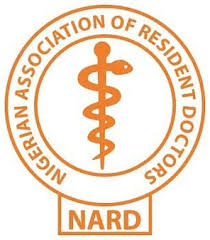
The five-day industrial action declared by the National Association of Resident Doctors has crippled medical services in many federal hospitals across the country.
Saturday PUNCH gathered that hospitals, including the Federal Medical Centre, the National Hospital, Abuja, and the University College Hospital, Ibadan, Oyo State, were on Friday grappling with a shortage of manpower to attend to their patients.
NARD declared the strike on Friday after repeated failures by the Federal Government to meet the association’s demands.
The association had issued three separate ultimatums before embarking on the action.
It first gave a 21-day deadline in July 2025, later extended by 10 days, which expired on September 10. The doctors then issued a final 24-hour notice that lapsed on Thursday, September 11.
The doctors are demanding the immediate payment of the outstanding 2025 Medical Residency Training Fund, settlement of five months’ arrears from the 25–35 per cent Consolidated Medical Salary Structure review, and other long-standing salary backlogs.
They also demanded the payment of the 2024 accoutrement allowance arrears, prompt disbursement of specialist allowances, and restoration of the recognition of the West African postgraduate membership certificates.
In addition, they called on the National Postgraduate Medical College of Nigeria to issue membership certificates to all deserving candidates, implement the 2024 Consolidated Medical Salary Structure, resolve outstanding welfare issues in Kaduna State, and address the plight of resident doctors at LAUTECH Teaching Hospital, Ogbomoso.
Resident doctors are the backbone of the country’s public health system, providing a large share of clinical services in federal and state hospitals.
Any strike action by the association often paralyses healthcare delivery, leaving patients stranded and hospitals overstretched.
When our correspondent visited FMC and the National Hospital, medical and dental consultants, alongside nurses and other health workers, were seen struggling to cope with the influx of patients.
Patients seeking care at the two federal facilities on Friday reported long queues and extended waiting times.
Many lamented that despite the delays, they had no choice but to remain because they could not afford treatment at private hospitals.
At FMC Abuja, an outpatient, Grace Okeke, said she arrived at 8 a.m. for her appointment only to discover that resident doctors were on strike.
This is almost 10 a.m., I have yet to be attended to. The people here are attending to patients, but the response is slow compared to before.
“I will have to wait because I have no other options, I don’t mind when they attend to me as long as I get what I want because I can’t afford to go to a private hospital,” she said.
Another elderly man at the Surgical Out-patient Department told our correspondent he could not undergo the test he was scheduled for because of the strike.
“I was told to come in for some tests today, but now it’s impossible. Imagine waiting until next Friday before I can see a doctor, anything could happen between now and then, even though no one prays for misfortune,” he said.
At the National Hospital Abuja, consultants, nurses, midwives, and other healthcare workers were also struggling to attend to patients.
In the Family Medicine Department, a woman expressed frustration over the long wait to see a doctor.
“I have been here for hours, and they keep telling us to wait. One nurse explained that doctors are on strike, though some staff are still attending to patients. Hopefully, it gets to my turn today, because I was booked to see a doctor,” she said.
Meanwhile, visits to some FCTA-run hospitals in Wuse and Kubwa revealed sparse patient numbers.
The Association of Resident Doctors in the Federal Capital Territory Administration had on Monday commenced a seven-day warning strike, leaving hospitals across the FCT to provide only skeletal services.
At Wuse District Hospital, only a handful of patients were seen at the outpatient department, while many wards remained empty. A nurse on duty told our correspondent that most patients had either postponed their visits or gone to private facilities.
At Kubwa General Hospital, the situation was similar. The outpatient hall was almost deserted, and several clinics were under lock, with only emergency cases being attended to by the few consultants and nurses available.
Speaking with our correspondent, the President of NARD, Dr. Tope Osundara, said the association would determine its next line of action after the expiration of the warning strike.
“Unfortunately, the minimum demands were not met within the 24-hour deadline on Friday, so the strike had to commence as directed by the association’s NEC.
“The next steps will be decided once the warning strike comes to an end,” he added.
The ongoing industrial action also grounded activities at UCH Ibadan as resident doctors boycotted work, leaving hundreds of patients stranded.
The News Agency of Nigeria reported that many patients at the accident and emergency unit of the hospital were denied admission on account that there were no doctors to attend to them.
A security officer, who did not want his name published, said that no patient had been admitted since he resumed duty early on Friday morning.
A patient at the General Out-Patients Clinic, Kazeem Ajibade, said few patients were attended to early in the morning, while others were sent back around 8.00 a.m., the time fixed by the doctors to commence their strike.
President of the Association of Resident Doctors in UCH, Dr. Gboyega Ajibola, stated that the strike, which commenced by 8.00 a.m. on Friday, was to draw government’s attention to their demands, which remained unattended to.
